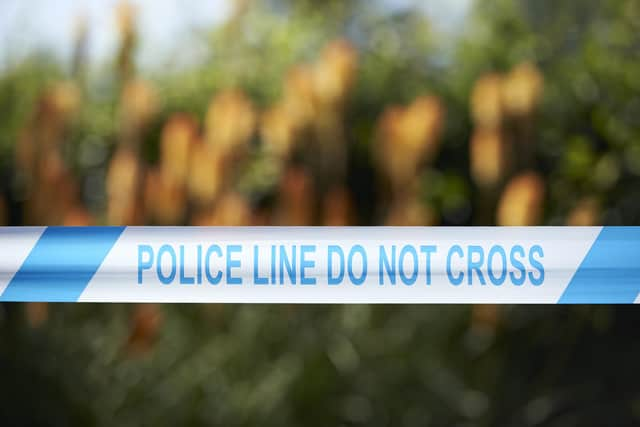Five deaths recorded by South Yorkshire Police after contact with the force
and live on Freeview channel 276
New figures show that across England and Wales, there were 206 deaths following police contact in 2019-20.
Of the five deaths in South Yorkshire, two are believed to have been suicides following release from police custody.


Advertisement
Hide AdAdvertisement
Hide AdInvestigations are routinely carried out into deaths where there was some contact with police forces beforehand.
Examples include deaths where there has been domestic violence in the past, or incidents where people have died in police chases.
Figures from the Independent Office for Police Conduct for 2010-20 show that 46 deaths were recorded following contact with South Yorkshire Police across the decade.
They include 14 apparent suicides following release from police custody, 10 fatalities following police pursuits or involving police vehicles responding to emergency calls and three deaths during or following custody when prisoners fell ill or sustained injuries during their time locked up.
Advertisement
Hide AdAdvertisement
Hide AdMichael Lockwood, the IOPC director general, said: "Every death is a tragic loss for the families and loved ones involved, and can have a profound effect on others.
“Police have hundreds of thousands of interactions with the public each year.
“Where deaths do occur following contact with police, it is important we have in place robust systems of investigation and accountability, identifying learning where we can so changes can be made to reduce future risks.
“Far too often officers are left dealing with vulnerable people in mental health crisis or medical emergencies whose needs and risks have not been adequately managed.
Advertisement
Hide AdAdvertisement
Hide Ad“Police must be properly trained and equipped to recognise vulnerability and manage the risks and challenges they face.
“But if we truly want to prevent further deaths and harm, we must look beyond policing to resources in community, health, welfare and specialist services.”
Charity Rethink Mental Illness said a high number of deaths involve people with mental illnesses.
Policy manager Will Johnstone said: "People experiencing a crisis in their mental health are highly vulnerable and need dedicated care, so it’s in no one’s interest for the police to be plugging gaps in mental health services.
Advertisement
Hide AdAdvertisement
Hide Ad“Investment in community mental health services is crucial to reduce the number of people who reach the point of crisis before they can access meaningful mental health support.”
Superintendent Delphine Waring, head of South Yorkshire Police’s Professional Standards Department, said: “Everybody who comes into contact with South Yorkshire Police, or who enters our custody, has the right to be treated fairly, in line with legislation, the appropriate guidance and approved national practice.
“Every death that occurs is a tragedy and there is always more we can learn from every situation. In the very sad event of a death occurring during or following police contact, we make a mandatory referral to the IOPC if there is an indication that the contact may have caused or contributed to that person’s death. The IOPC then determine whether an independent investigation is required.
“We cooperate fully with any independent investigations, we take ownership and thoroughly review any local investigations and will always evaluate the findings to establish if there are lessons to be learned. We will also conduct our own immediate internal review to make sure any initial learning points are swiftly identified and actioned.”